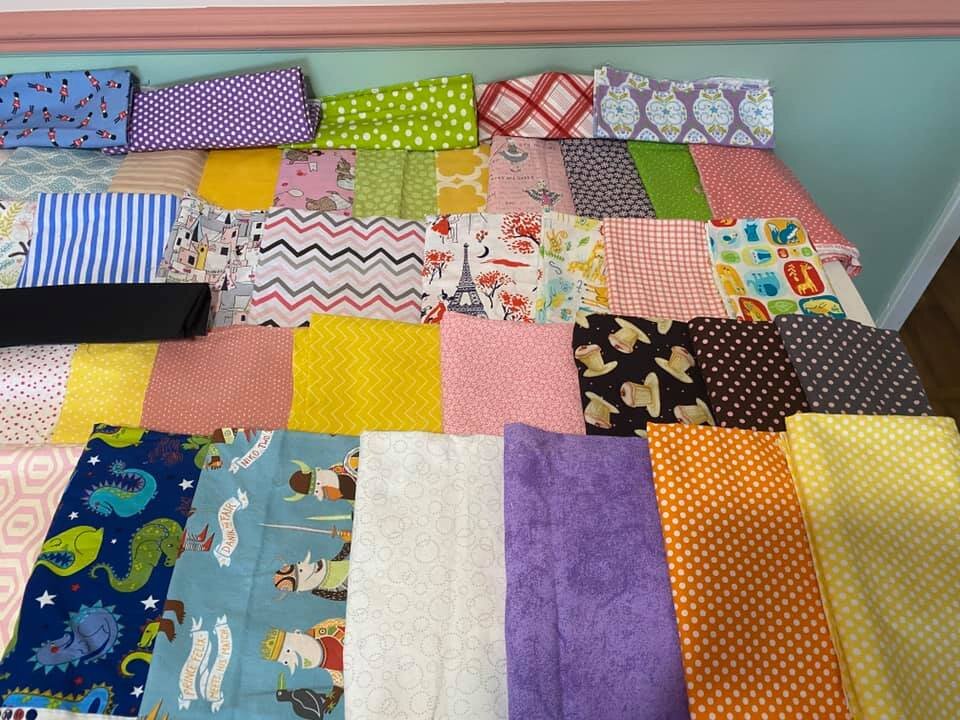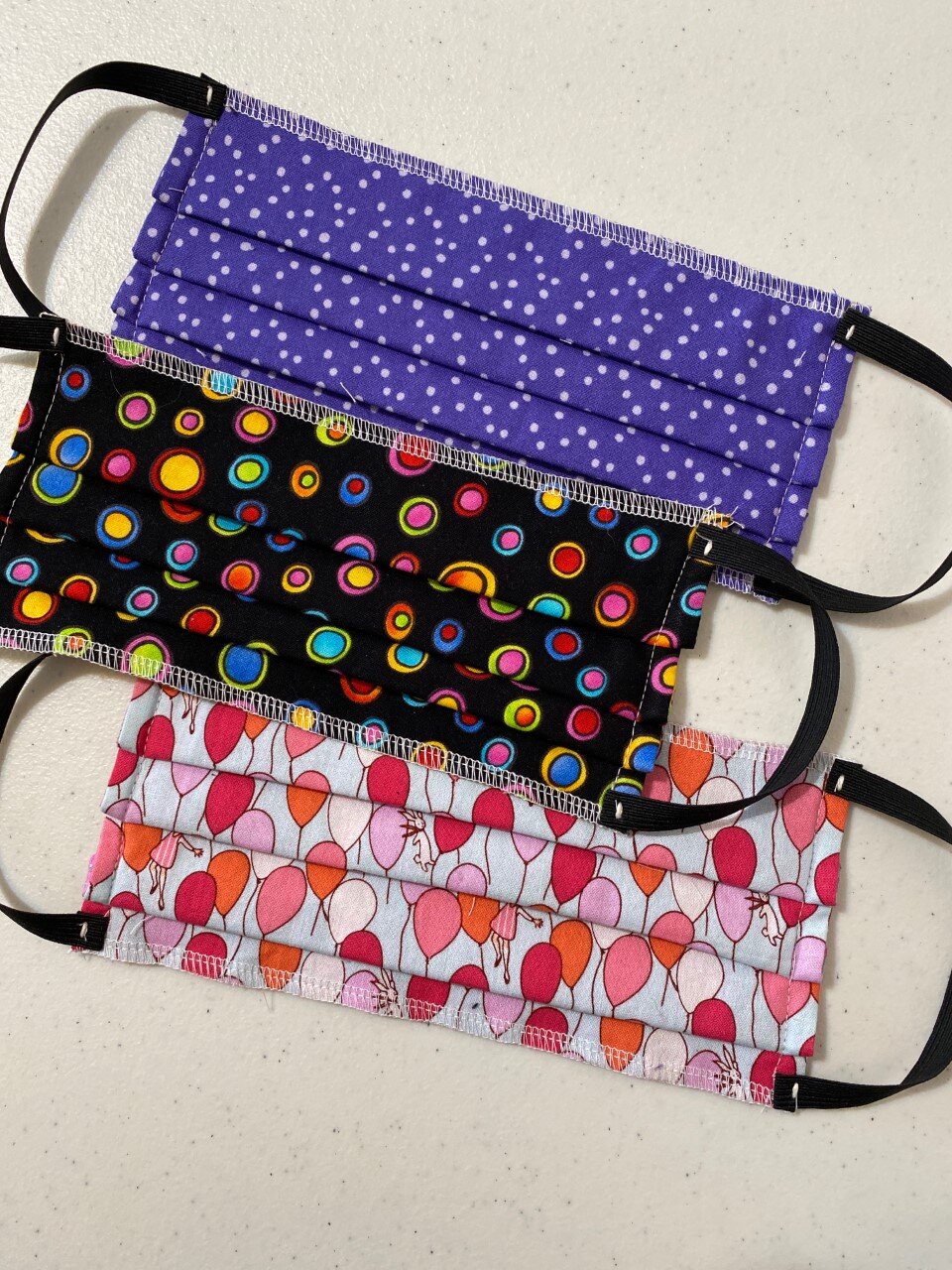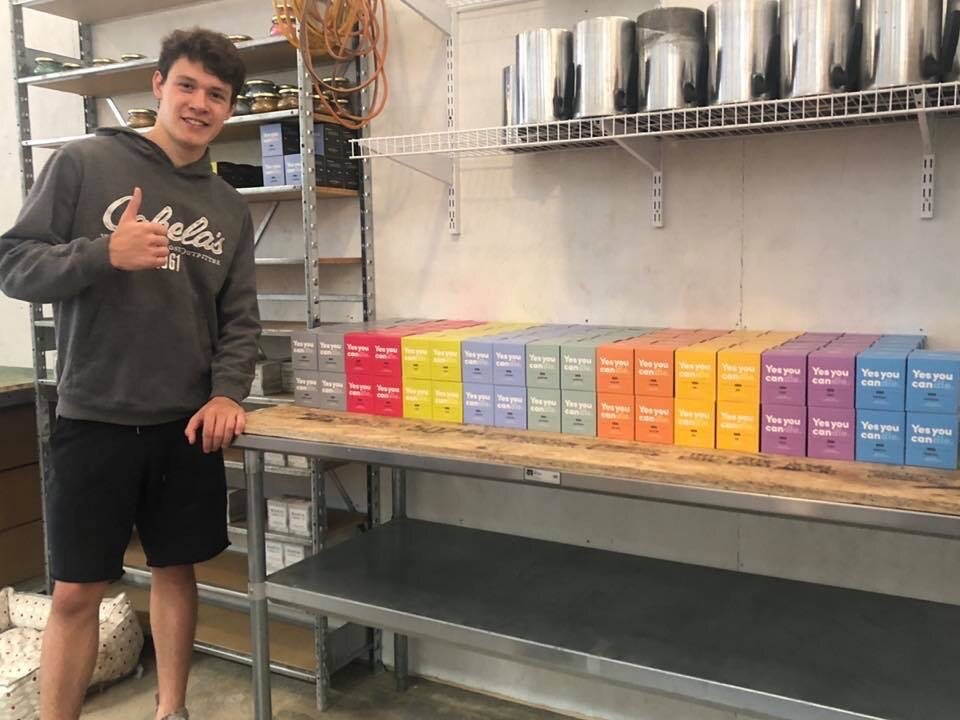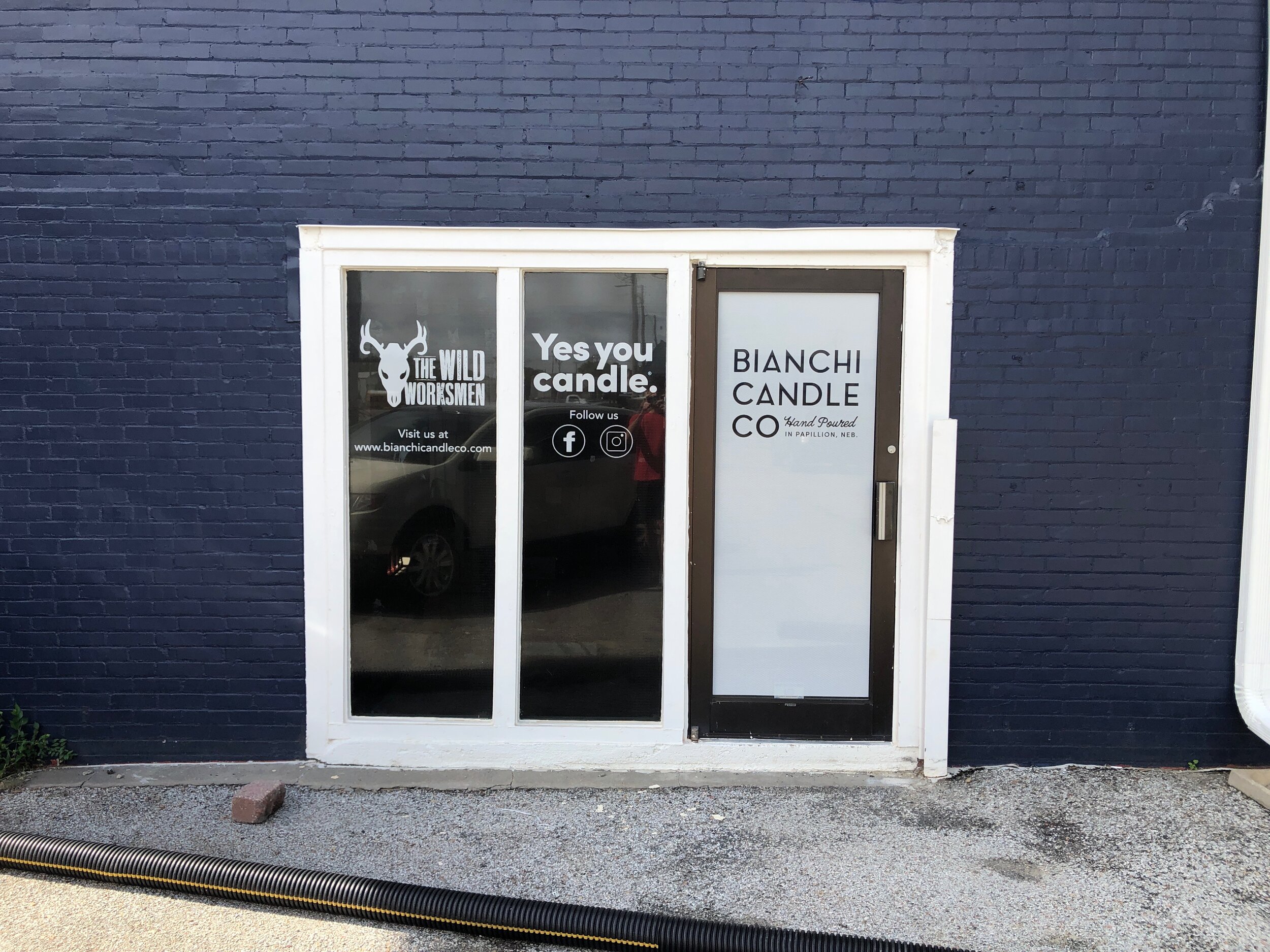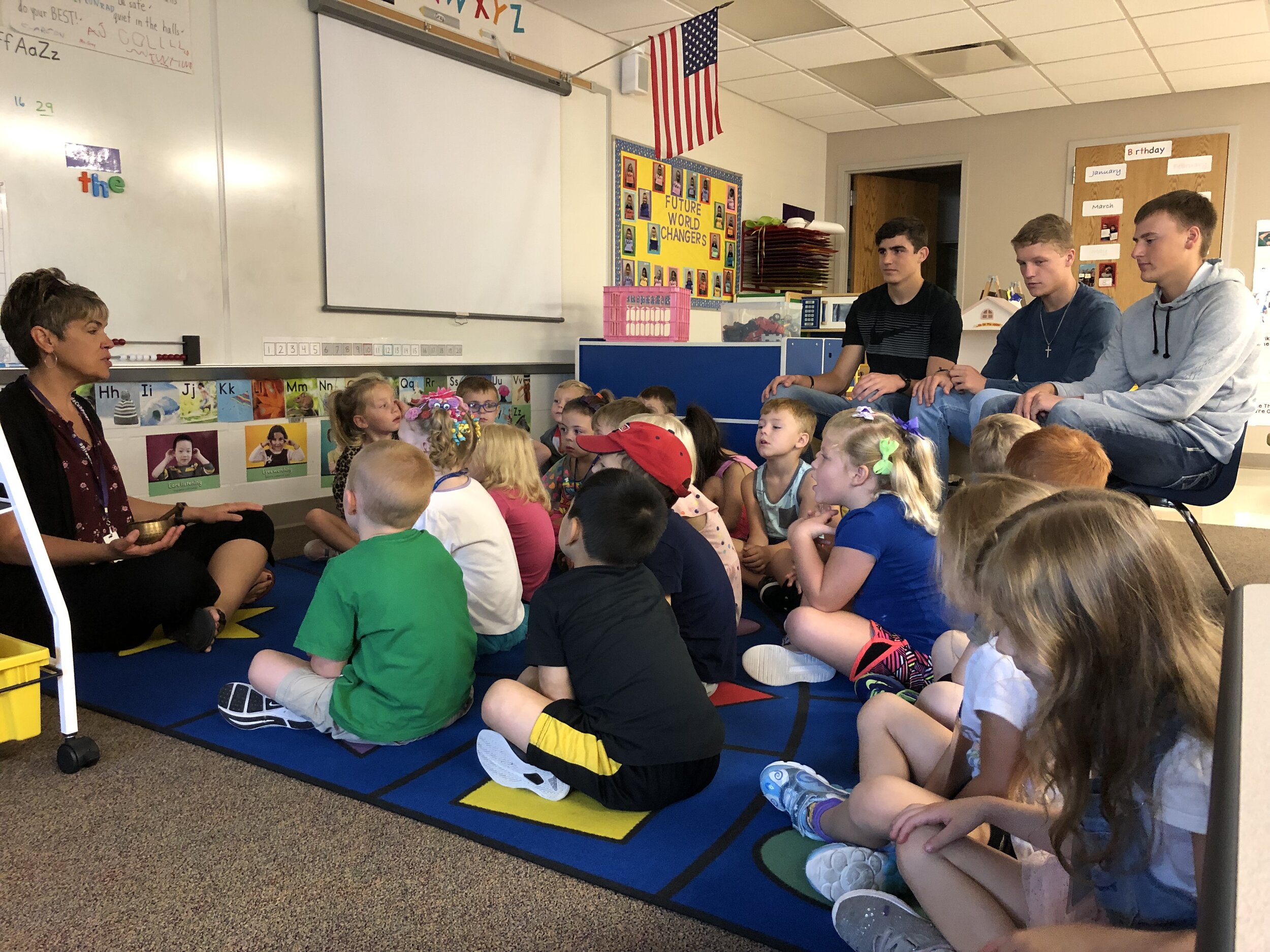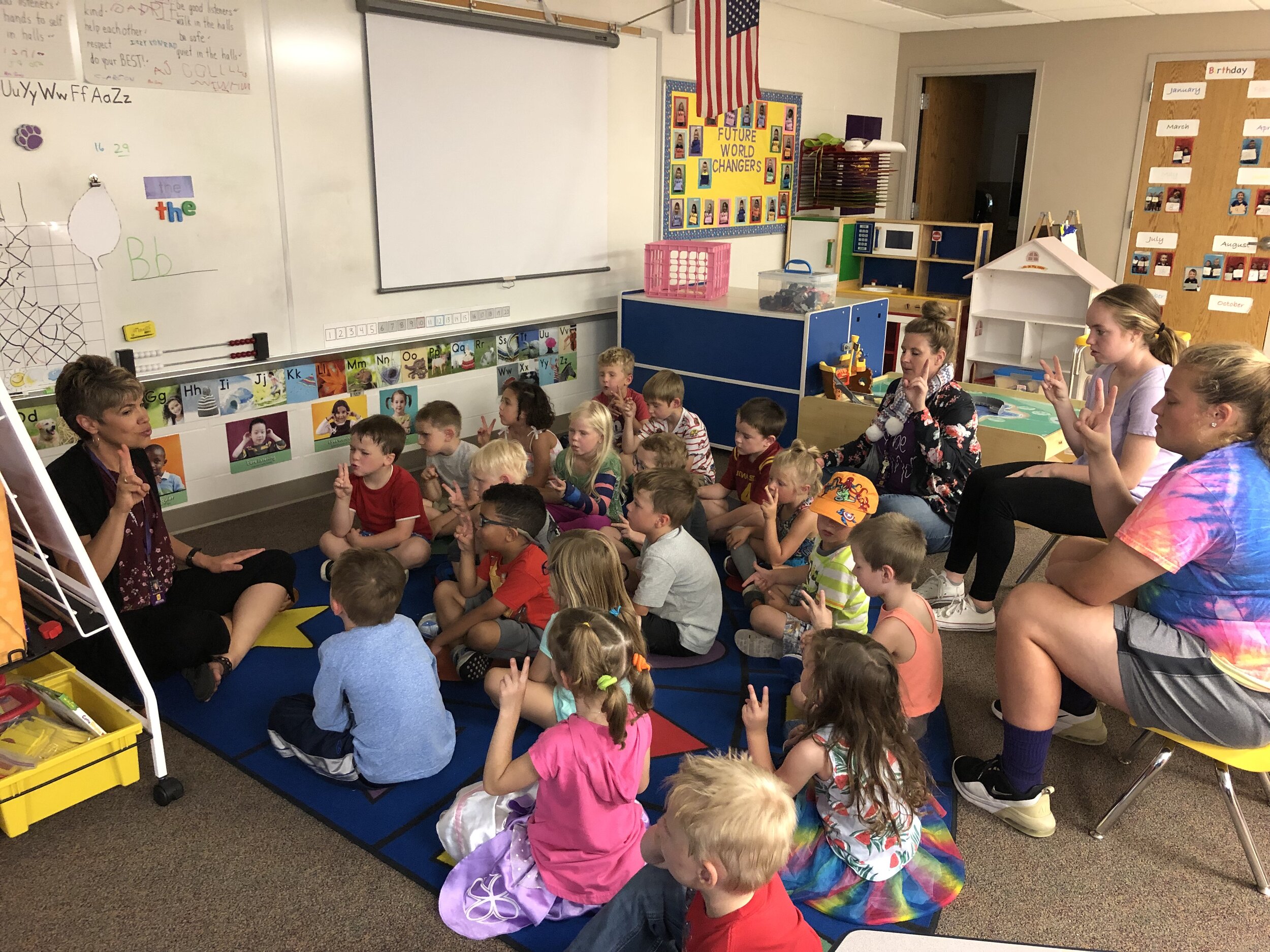Dot Mielke hard at work sewing another mask.
Although Dorothy (Dot) Mielke has never experienced a pandemic like COVID-19, she did live through the scourge of the polio epidemic. Just before her second birthday in 1942, Dot, along with her three sisters, contracted polio. “While we were quarantined in the house, my dad was harvesting wheat in South Dakota,” said Dot. “They got word to him, but he couldn’t come home because he wasn’t allowed in the house.” Her mother was helped daily by a nurse and people in the community gifted the children with many toys. When the fever finally broke, all of Dot’s toys had to be burned except for one doll her mother set aside for her. Until the early 1950s when a polio vaccine was finally developed, Dot remembers not being able to congregate or swim in public pools, and the general anxiety surrounding the fears of contracting the virus. Unfortunately, the virus left Dot unable to walk without assistance again. Still, that did not stop her from living a full life, thanks to the mentorship and guidance from her father and greatest advocate. In a time when many people with disabilities were institutionalized, her father made her crutches and a ramp with rails so she could practice walking on her own—all while encouraging her to believe in her ability to persevere.
While growing up in Hastings, Nebraska, Dot learned to sew from her mother. “In that day and age if you knew how to sew, it saved money,” Dot added. The first thing she sewed with pride was a gathered skirt, a fashionable item in that era. After Dot matured into young adulthood, she learned to view herself without a disability, married, sewed clothes for her children, and eventually earned a degree in Special Education. When her battles with post-polio and carpal tunnel syndromes forced her to retire after nineteen years as a secondary special education teacher in the Omaha Public School system, Dot began sewing clothes and costumes for her grandchildren, and creating beautiful dance costumes for youth in the Omaha community. She hadn’t sewn for the past three years—until a new pandemic emerged on the horizon.
Just before Easter, a now seventy-nine-year-old Dot retrieved her sewing machine from storage and began creating masks. “I thought that since I had all this leftover material from sewing Halloween and dance costumes years ago, I might as well utilize it for good and sew masks for my family members,” she stated. Dot then conducted extensive research online on pattern development, filter options, and sewing supply availability and eventually decided that a triple layer of washable fabric, with an included pocket to insert a Scott’s shop rag, would provide the most protection. Her biggest challenge since then has been sourcing elastic and shop rags. Once her granddaughter, Gabby, began delivering the masks to family and sharing photos of the masks on social media, the positive responses were plentiful.
Dot utilizes many colorful fabrics for the masks she creates.
As Dot started feeling good about herself and her new purpose, she used her stimulus check to purchase more elastic, shop rags, and new cotton fabric she thought would bring a smile to people’s faces—even if they couldn’t be seen behind their masks. It makes her smile when she receives grateful messages and gifts from the recipients of her masks. “It’s the little things that mean so much more than money,” she added. Making the masks has rejuvenated Dot. Although her hands are numb on most days, Dot has sewn over 150 masks to date. She encourages her recipients to wash her masks between each use, so they stay sanitary and offer the best protection all around.
Today, she finds herself busier than ever, serving a new purpose that fills a need in her community. Her new mantra is, “Saving the world, one face at a time.” Dot takes special orders for masks every week, and continues to sew masks for adults and children, even when orders are low, knowing that soon school will be back in session and events will be re-scheduled. When asked what advice she would offer someone struggling with a disability, Dot encourages others to, “Just be you. I ask people to try to see me as I see me, not with a disability but just as Dot.” Although she is quite content with her life, Dot admitted that just for one day, she would like to stand on her tiptoes and be like one of the young dancers she once sewed costumes for.
Completed masks ready for her many recipients.
When reflecting on the pandemic and ways to cope, Dot urges people to use common sense, listen to advice from medical professionals, and not to believe everything they hear and read. Her own tactics include avoiding the news, binging on good television shows, and doing things that make her happy. As her life comes full circle and Dot is provided an opportunity to reassure all of us that this too shall pass, just like the polio epidemic, she gently reminds us of the importance of always being good stewards for others, no matter what the circumstances or challenges.
To place an order for a mask or masks, reach out to Dot at dotmasks@gmail.com.
Vicky DeCoster is a Certified Life Coach based in Omaha, Nebraska, who specializes in helping her clients both locally and nationwide to move past obstacles, create a plan for happiness, and cross the bridge of transition to find a new and fulfilling direction in life. To read more about her and her practice, visit her at crossthebridgecoaching.com.


